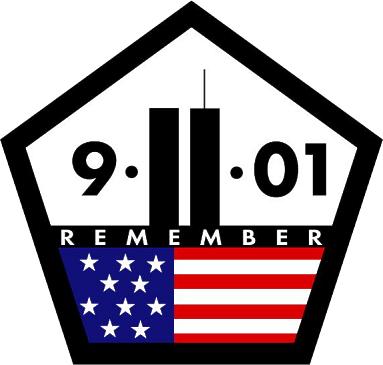“Never Forget.”
The sentiment echoes especially loudly today, eleven years later. And eleven years later, I find myself asking two questions:
- What, precisely, are we to never forget?
- Does this never forgetting improve our world?
Regarding question #1, I think it is a natural, theraputic thing to keep alive in our hearts and minds the good memories associated with loved ones. Hanging onto loss as a perpetual justification for war, however, is destructive to all.
What else are we to never let go of? The fear? The confusion? The anger? The distrust toward fellow humans? The hatred? The bloodlust?
“Whether we bring our enemies to justice, or bring justice to our enemies, justice will be done.” – George W. Bush (9/20/01)
What exactly did President Bush mean by “justice?” I personally believed it was just an emotional appeal for revenge cloaked in the metaphor of justice. But I couldn’t really be expected to know that for certain then. Now, however, we have 11 years of historical context to reflect upon for wisdom.
Eleven years later, we are left with an ever-expanding TSA, Guantanamo Bay, NDAA 2012, signed by President Obama, which declares the Continental United States a war zone, drones over American cities, electronic domestic surveillance, unending wars, civil liberties trashed… all in the name of “justice?”
When does it end? How does it end? Does it end?
For the Jews and Christians in my rather limited audience, consider the following:
For I will be merciful to their unrighteousness, and their sins and their iniquities will I remember no more. – Hebrews 8:12
Hebrews not your cup of tea? How about some Isaiah?
I, even I, am he that blotteth out thy transgressions for mine own sake, and will not remember thy sins. – Isaiah 43:25
If Yaweh chooses to forget sins that have been atoned for, why shouldn’t we strive to that level as well? I know… you’ve got me on a technicality, right? Those who did this to us never asked our forgiveness, and therefore are not eligible to receive it. Right? Ask yourself this: Do we only forgive once our “enemy” has begged for it? Or do we give forgiveness freely? Which strives toward a more enlightened, evolved level?
I looked for equivalent sentiment in Buddhist thought, but Buddhism doesn’t appear believe in “sin” as the Judeo-Christian faiths define it. I also looked for equivalents in Islam, but I’m so completely ignorant of the religion, I was also unsuccessful. If you have any knowledge in this area, please leave a comment below.
Ultimately, my questions don’t even require that you have any particular religious or spiritual faith at all. Just ask yourself one question: What is the ultimate cost of never forgetting?
I don’t begrudge those who remember. It certainly may still be way too early for many to forget, let alone forgive. But never is a very long time. Have we decided that we are never going to allow our world to return to peace? Even after WWII, the most destructive war in recorded human history, the world is largely friendly with the aggressor nations. The United States has very close relationships with Germany and Japan, despite their roles in the war. To be certain, the attacks on 9/11 were not openly ordered by a nation-state, nor were they carried out by soldiers in easily-identifiable uniforms. This does make things a little more tricky. But difficult ≠ impossible.
Forgiveness is infinitely powerful and lethargic. But it also requires complete vulnerability. Perhaps it is still too early. But never is a very long time.

